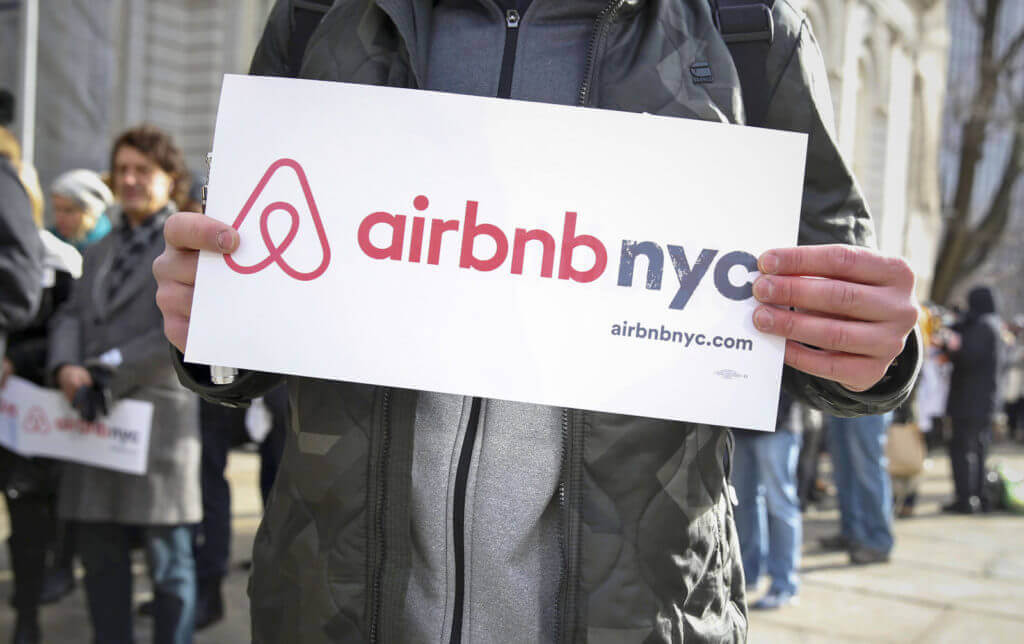
From the outside, there was nothing especially notable about the small white building on the corner of a cobblestone street in TriBeCa. But until recently, it was a crucial location in a sprawling empire.
“Beautiful Loft Prime Tribeca 4BR/2BA Sleep 10,” read the listing on Airbnb for one apartment there.
Two of the three apartments in the building were popular with tourists looking to stay in one of Manhattan’s most desirable neighborhoods — at $600 a night each, they were a bargain for a large group.
But they were also illegal — part of an elaborate real estate scheme to make millions by circumventing state and local laws and Airbnb’s own rules.
The building, on Greenwich Street, was part of a larger enterprise that made more than $20 million in revenue by unlawfully renting 130 Manhattan apartments to almost 76,000 guests through Airbnb, city officials said.
The plot was geared toward getting around city regulations that are intended to keep blocks of apartments from being turned into makeshift hotels that avoid lodging taxes and oversight.
The crackdown on the empire last month was a milestone in the escalating battle between Airbnb and New York City — the company’s largest market in the country. Airbnb condemned the exploitation of its platform, but the scheme showed how the home-sharing site has given opportunists a new kind of hustle.
Airbnb has clashed with other cities. Los Angeles, Amsterdam, Paris and Vancouver, British Columbia, have all passed laws restricting Airbnb rentals. In July, Palma de Mallorca became the first city in Spain to ban Airbnb.
Interviews and documents offer a glimpse at how the New York scheme worked. According to the suit, the ring used multiple misleading identities to dodge Airbnb’s rules, text tourists and book apartments to budget-minded travelers. Addresses were fudged to avoid scrutiny. A cadre of cleaners was apparently recruited through Facebook.
In all, more than 100 Airbnb host accounts and 18 corporations were created to run an illegal hotel business that stretched north from TriBeCa to SoHo, Gramercy, the Upper East Side and Harlem, according to a lawsuit brought by the city.
New York regulations are supposed to keep apartments from being pulled out of an already-tight rental market to cater to the tourist trade. They specify that it is illegal to rent an entire apartment in most buildings for fewer than 30 days unless the permanent tenant is present while the renter is there.




